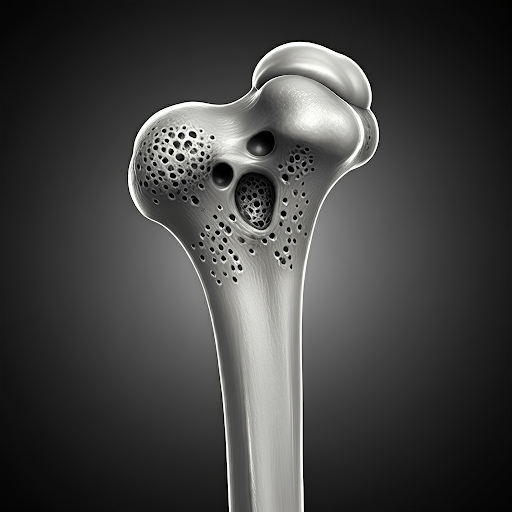
The Critical Role of Amino Acids in Bone Health and Osteoporosis Prevention
Calcium and vitamin D often get all the credit, but about 20–30% of bone mass is actually protein. Collagen and its amino acid building blocks give bone its flexibility and resilience. Without enough amino acids, minerals alone can’t maintain strength or density.
Understanding Bone Composition
Living bone contains a matrix of collagen fibers, connective tissue, marrow, blood vessels, and mineral crystals bound to proteins. The collagen framework—made largely from glycine, proline, lysine, and hydroxyproline—acts like rebar in concrete, preventing brittleness.
Key Amino Acids for Bone Integrity
Essential Amino Acids
- Leucine: Associated with higher bone mineral density (Jennings et al., J Bone Miner Res 2016).
- Lysine & Arginine: Stimulate osteoblast activity and collagen formation (Chevalley et al., Calcif Tissue Int 1998).
- Methionine: Supports cartilage matrix and methylation balance (Front Endocrinol 2021).
Non-Essential Amino Acids
- Glycine & Proline: Crucial for collagen synthesis; higher circulating glycine links to stronger cortical bone (Eriksson et al., J Clin Endocrinol Metab 2021).
- Alanine & Glutamic acid: Correlate with higher spine bone density (MDPI Int J Mol Sci 2022).
Protein–Bone Connection: Myths vs. Evidence
Earlier concerns that “high protein weakens bone” have been refuted. Studies now show that protein increases intestinal calcium absorption and overall calcium balance. Low protein, on the other hand, decreases absorption and can trigger secondary hyperparathyroidism, accelerating bone loss (Darling et al., Proc Nutr Soc 2021).
Protein Sources and Bone Health
Both animal and plant proteins help preserve bone density when total intake is adequate. A 2024 analysis found that diets rich in whole-food plant protein sources were linked to lower fracture risk (JAMA Netw Open 2024). The acid-ash theory blaming animal protein for calcium loss has been largely disproven.
Collagen & Peptide Evidence
Supplemental collagen peptides may directly support bone turnover markers. In a 12-month randomized trial, specific collagen peptides improved BMD in postmenopausal women (König et al., Nutrients 2018).
Integrative Strategy for Bone Strength
- Maintain adequate protein (~1.0–1.2 g/kg/day) emphasizing complete amino acid profiles.
- Include collagen-rich or EAA-focused nutrition for matrix support.
- Do regular weight-bearing and resistance exercise.
- Ensure sufficient calcium, phosphorus, vitamin D, K, and magnesium.
- Support hormone balance, sleep, and lifestyle factors that regulate bone remodeling.
FUNDAMINOS®: Essential Amino Acids for Bone Support
FUNDAMINOS® delivers all nine essential amino acids in precise ratios for muscle and connective-tissue maintenance. Ten grams supplies the equivalent anabolic stimulus of 40 grams of dietary protein with near-complete utilization—useful when appetite, digestion, or training demand limit whole-food intake.
Explore FUNDAMINOS®